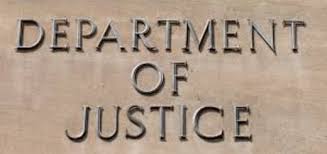Fresenius Medical’s Bribery Conduct Precludes Declination (Part II of III)

Fresenius Medical came close to earning a declination under the FCPA Corporate Enforcement Policy. Unfortunately, Fresenius’ effort fell short — but it came close. Fresenius Medical operates more than 3700 dialysis clinics worldwide and has 37 production sites in various countries.
Fresenius’ relationship with third-party agents and distributors created significant risks. These relationships, in a number of high-risk countries, were used to funnel bribery payments. At the core, DOJ noted that Fresenius compliance resources were insufficient in light of Fresenius’ risks, particularly its third-party risks.
The Statement of Facts accompanying the settlement documents reflect comprehensive bribery schemes in a number of countries. Here.
Between 2007 and 2016, Fresenius bribed public physicians and health officials in a number of countries.

In Angola, Fresenius made bribery payments to an Angolan military officer and government-employed nephrologists. Specifically, Fresenius awarded government physicians and health officials shares in a local Angolan joint venture, which was subject to approval by Fresenius Management Company but failed to include specific information about the joint venture shares; Fresenius contracted with the sons of the military officer for warehousing space that it never used; and it entered into consulting agreements with doctors for which no services were ever performed.
In Saudi Arabia, Fresenius bribed health officials and doctors with cash payments, used fake check cashing commission agreements with its employees to fund bribery slush funds, made false payments to a government charity; and gave gifts and made payments to physicians for travel with no business or educational justification.
In Morocco, Fresenius bribed a government official in exchange for contracts to develop kidney dialysis centers at state-owned military hospitals. Fresenius paid the official 10 percent of the value of the contracts, and a sham bonus to an employee that was passed to the official.
In Spain, Fresenius paid a government physician $90,000 for consulting services without an agreement or contract. The payment was made to the physician at a state-owned hospital that awarded Fresenius a tender. Fresenius also paid for other doctors in Spain to travel to medical conferences and made donations to fund projects for the doctors.

In Turkey, Fresenius gave a doctor a 35 percent interest in a joint venture (worth $74,000), and subsequently purchased the shares from the physician resulting in a $356,000 profit for the doctor.
In West Africa, Fresenius paid bribes to public health officials and physicians in numerous countries, including Benin, Burkina Faso, Cameroon, the Ivory Coast, Niger, Gabon, Chad and Senegal. In Gabon, for example, Fresenius paid a price plus the commission to officials for each dialysis kit sold. The third party gave a portion of each commission to the physician or health official.















